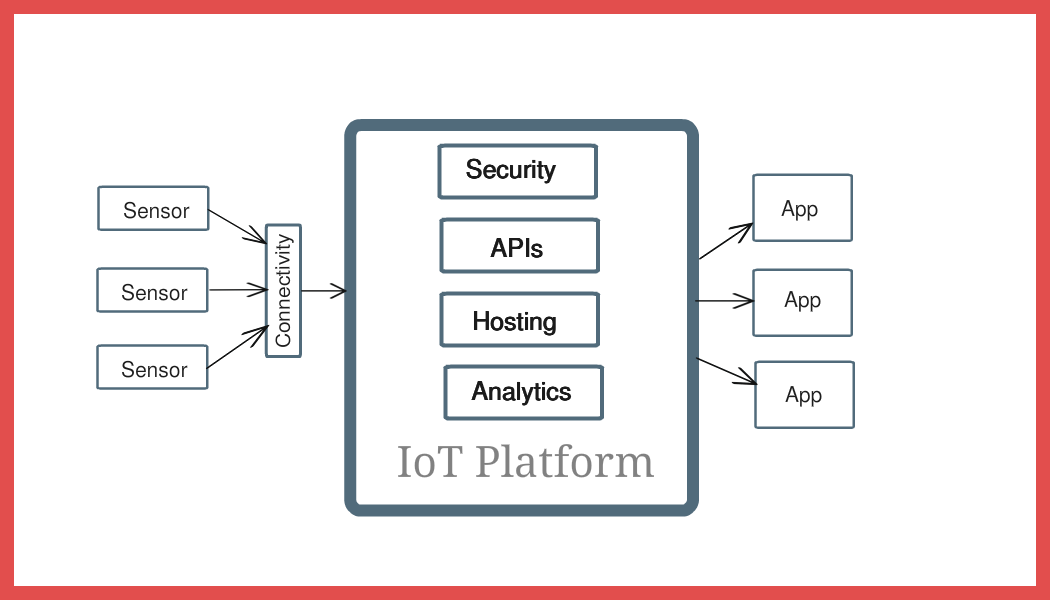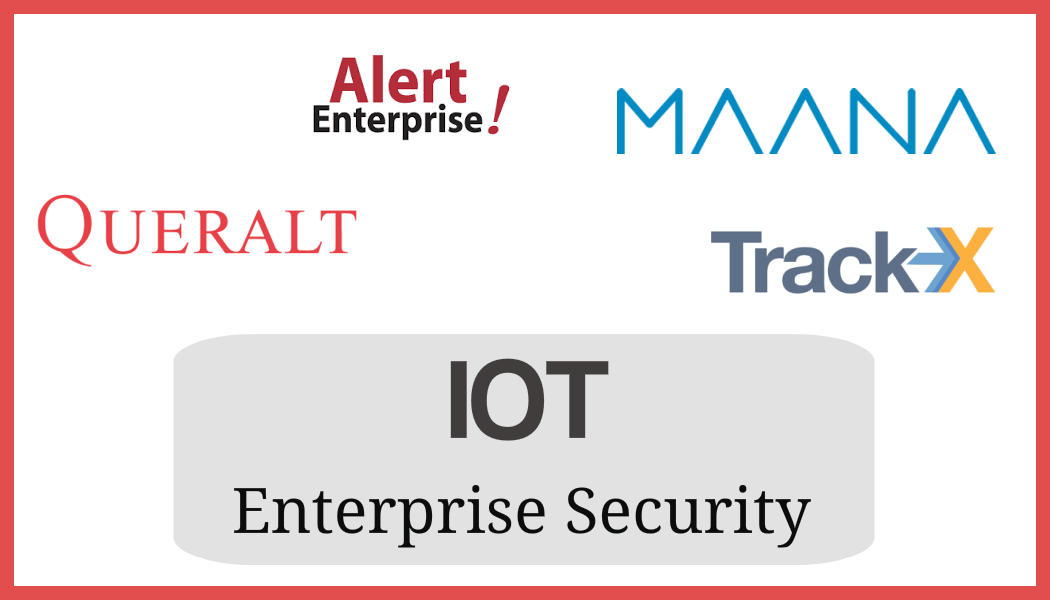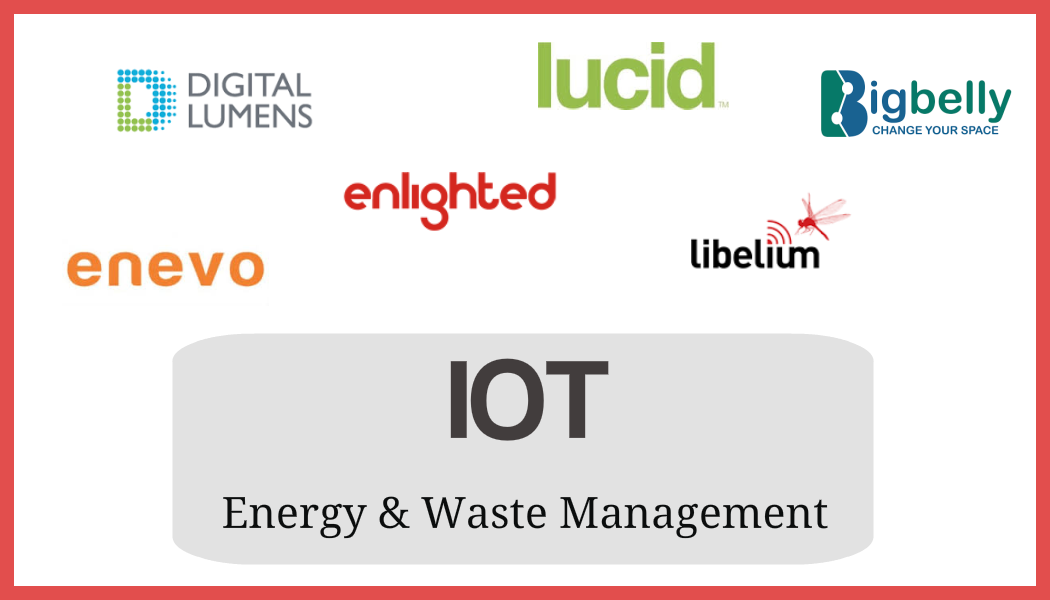Mention ‘Internet of Things’ (IoT), and what comes to mind first is the cool new gadgets that make it to the tabloids daily. Tech journals love featuring devices that automate and simplify the most common tasks we perform everyday – Fitbit, Nest, Echo, Dash, Apple Watch, Samsung Gear, self-driven cars, smart home appliances like TVs, refrigerators, washing machines, locks, lights – and this list just scratches the surface. Despite the flood of consumer devices in the IoT space, the enterprise is slow to catch on with the IoT revolution, or so it seems when you read popular tech journals. However, there are many enterprise IoT startups that promise a smarter workplace, not some time in the future, but today.
2016 acquisitions in the enterprise IoT space
To sense the momentum around IoT startups in the enterprise, you need look no further than the biggest tech companies and their acquisitions. In 2016 alone, a good number of acquisitions by tech giants have been in the enterprise IoT space.
| IoT Startup | Product/Service | Acquired by | |
|---|---|---|---|
| Yogitech | Semiconductor functional safety | Intel | |
| Solair | IoT app platform | Microsoft | |
| Jasper | IoT services platform | Cisco | |
| Opower | Energy management | Oracle | |
| Wyless | Managed IoT services | KORE | |
| Ruckus | Smart wireless | Brocade | |
| Broadcom’s IoT dept | IoT networking & connectivity | Cypress Semiconductor | |
| Implisit | Predictive analytics for sales | Salesforce | |
| Apical | IoT imaging & computer vision | ARM |
The biggest IT service providers are competing to bring the most innovative IoT solutions to their customers. The startup ecosystem is also in a healthy state producing IoT devices and apps that meet the needs of IT teams. With this focus on innovation in IT, it’s clear that IT plays a key role in enabling smarter enterprises with IoT.
IoT startups are transforming every aspect of enterprise IT
From traditional IT responsibilities like networking, asset management, and identity management, to relatively modern ones like sustainability, IoT is changing the way modern IT teams function.
Platforms provide end-to-end management of IoT systems
IoT platforms are not all the same. Some act as a bridge between sensors and end-user apps. Some include sensors and apps as part of the platform. Whichever the combination, the goal of all IoT platforms is to make it easy to build, deploy, and manage entire IoT systems.

IoT platforms are sometimes focussed on a specific industry, and may include specialized devices as sensors, or they could function as pipes that connect devices with each other, and with the backend system. Some examples of IoT platforms are Ayla Networks, Mesh Systems, Evrythng, Exosite, Woozilli, and Zonoff.

The IoT platform startups strive to have the most complete offering with clearly defined services for every industry. Some like Woozilli are yet to clearly communicate their product-market fit, but most cater to multiple functions within the enterprise like business, marketing, and support.
Ayla pitches their platform as an ‘Agile IoT platform’, and Evrythng has a good number of use cases, especially in the CPG sector. For example, Evrythng adds smart tags and labels to any product like a food or beverage, which can then be used to initiate actions like a notification when the product is consumed. This enables social experiences that were never possible before.
Platforms are key to the growth of IoT in the enterprise. As large enterprises setup IoT systems, their needs will not be met by any one service, or service provider. They require a collection of services that can be integrated and customized for their use. IoT platforms give enterprises the ability to build out these systems, and manage them end to end. They bring together IT, Dev, and QA to enable the modern DevOps paradigm when building apps and systems.
IoT startups bolster enterprise security
Security is of first importance to enterprise IT. Thanks to innovative startups, IoT is changing the way IT manages security. Startups solving problems in the enterprise security space include AlertEnterprise, Maana, Queralt, and TrackX.

Among these startups, AlertEnterprise focuses on access control for employees, visitors, and users. It secures any facility against threats like fraud, theft, and more. Maana positions itself as an analytics platform for assets, and focuses on the industrial, and oil & gas sectors. Trackx helps manage high value assets in manufacturing companies, and optimize physical processes like supply chain.
Though these startups focus on the industrial sector primarily, every enterprise IT team deals with asset and identity management, and can benefit from these services. Especially, if your IT team still uses outdated manual processes that are error-prone and full of bottlenecks, these solutions can breathe new life into your security processes. The data they generate is always up-to-date, and error-free because it is captured automatically by sensors, without human intervention. Further, you can use API integrations to set automated alerts and actions to respond to threats and incidents as they happen. This is the next frontier in enterprise security and IoT is enabling it.
IoT startups make energy management comprehensive & effortless
Traditionally, IT looked at energy and waste management as a way to reduce capex costs. Today, with strict government legislations, and increased awareness of environmental hazards, energy and waste management has taken center stage to include sustainability as its key goal. But this is only possible if IT has visibility and control over all aspects of the business like production, logistics, and security. Energy management solutions are provided by startups like Enlighted, Digital Lumens, Lucid Connects, and Libelium, while others like Enevo, and Bigbelly tackle enterprise waste management.

Digital Lumens exclusively provides smart lighting solutions. They handle both hardware and software components of the service. Lucid uses its platform Building OS to overhaul building management tasks such as utility bill management, budgeting & planning, and occupant engagement. Libelium focuses hardware devices like smart connectivity devices, and kits that help ‘makers’ create IoT devices.
Enevo caters to cities and waste management companies, helping them gain analytical insight from their operations. Bigbelly offers a blend of software, and smart waste collection ‘stations’. It caters to cities as well as smaller facilities like offices.
These modern solutions use sensors to monitor buildings. They constantly report on the performance, and health of assets, including how much power they consume and their carbon footprint. What used to be a manual process inspected by humans on the ground is now relegated to hundreds or thousands of smart sensors. The data sets generated by these sensors are rich, and IT is able to perform advanced tasks like advanced alerts, automation of processes, real-time monitoring, and incident recovery. IoT is bringing more than just cost savings, it’s enabling a sustainable future, and reducing the load on IT teams.
Other IT functions being transformed by IoT startups
Routine IT tasks are automated, made smarter, and more efficient thanks to cutting-edge IoT technology.
- Vapor IO – Data center management
- Ekahau – Smart networking
- BitStew – Data integration platform
- AwarePoint – Real-time locating system (RTLS)4
- APX Labs – Smart glasses
Whether it’s managing a data center, setting up a smarter network, integrating data between two IoT systems, or being location-aware, the presence of IoT is pervasive.
IT is the backbone of the enterprise, and is a key competitive advantage to organizations. IoT is equipping IT teams with the tools to make the smarter workplaces of tomorrow a reality today. To borrow a phrase from the consumer app explosion, IT can now say, ‘There’s an IoT app for that.’



